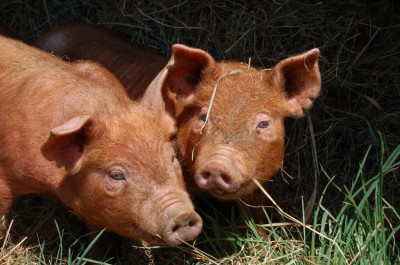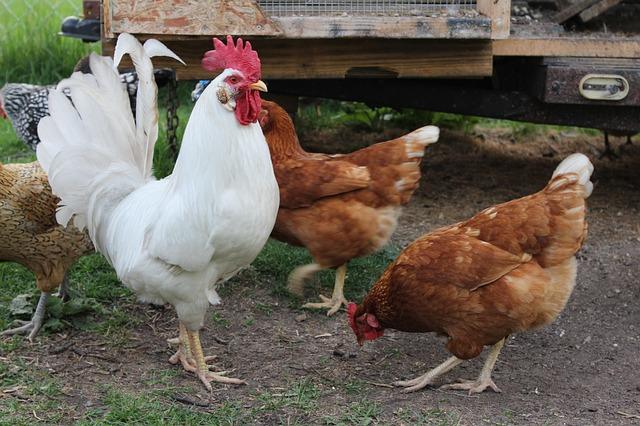Essential oils can be a great alternative to conventional drugs on the homestead farm. I have used them successfully to treat various illnesses, help control insects and parasites, and increase the growth rates of pigs and poultry.
As with anything conventional or alternative, they are not a magic bullet to overcome poor livestock management. Livestock of any sort need proper nutrition and housing as the foundation to health and productivity.
Essential oils – if you’re not familiar with them — are plant extracts that have many healing properties. Some, such as oregano, thyme and cinnamon, have antimicrobial, antibacterial and antiviral properties.
The Best All-Natural Wormer For Your Livestock Is Right Here
In the past several years, a good deal of scientific research has been conducted to explore the use of various essential oils in livestock management. One such study was published in the October 2014 edition of the journal Poultry Science, and it found that chickens that consumed feed with added oregano oil had a 59 percent lower mortality rate due to ascites, than birds that were not treated. You can find many other similar studies on the Internet with a simple Google search.
To help keep layer flocks and broiler chickens healthy, try a mixture of oregano and cinnamon oil in their water. A good rule of thumb is it takes about seven drops of oil in a gallon of water to equal 100 ppm. Oil doesn’t mix with water, so you’ll need to shake it up as you think about it through the day, or at least each time you refill the water.
 Oregano, cinnamon and tea tree oil are three of my favorite oils for use on the homestead. Oregano and cinnamon are hot oils, meaning they will burn your skin if used without a carrier oil to dilute it. When applying topically or mixing in feed, mix with a carrier oil such as vegetable oil, coconut oil or olive oil. I mix them in a three-to-one ratio. (Three drops of carrier oil to one drop of essential oil).
Oregano, cinnamon and tea tree oil are three of my favorite oils for use on the homestead. Oregano and cinnamon are hot oils, meaning they will burn your skin if used without a carrier oil to dilute it. When applying topically or mixing in feed, mix with a carrier oil such as vegetable oil, coconut oil or olive oil. I mix them in a three-to-one ratio. (Three drops of carrier oil to one drop of essential oil).
Essential oils are highly concentrated and should be used sparingly. The smaller the animal, the less you will need. A chicken or young pig may need only three drops where full-grown pigs or goats may need 10 drops.
If you are treating some type of illness in your stock, it is best to apply small amounts several times a day rather than a large amount once a day.
If I have young pigs that are showing signs of illness, such as coughing or just generally not doing well, I’ll mix up equal parts oregano, cinnamon and tea tree oil diluted in a three-to-one ratio with a carrier oil and simply drip three to five drops on the back of their neck or behind their ears as they are eating at the feeder.
Over the years, I have had pigs come down sick in the pasture to the point they were off their feet and seemingly not going to make it. We got them in the barn and began a treatment protocol of this mixture topically behind the ears, and three to five drops on their tongue at least twice a day (better if you can do three to five times a day). We have been amazed at how they make a complete turnaround in a week or less. I have helped neighboring farmers bring livestock back to health using essential oils when the veterinarian had given up.
Do some research on the powerful effects that essential oils can have on your homestead livestock. You will be glad you did — and so will your animals.
Have you used essential oils on livestock? If so, share your advice in the section below:
 Off The Grid News Better Ideas For Off The Grid Living
Off The Grid News Better Ideas For Off The Grid Living




